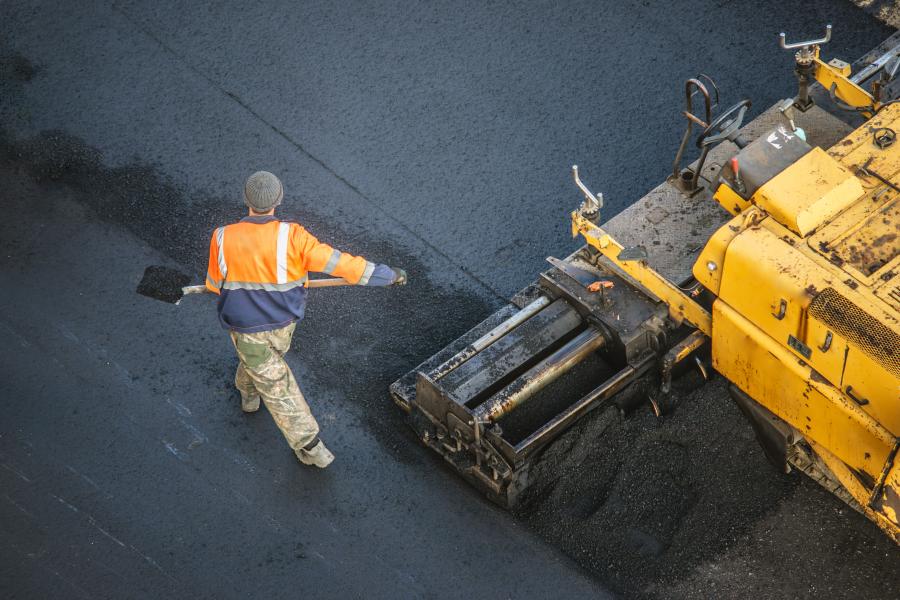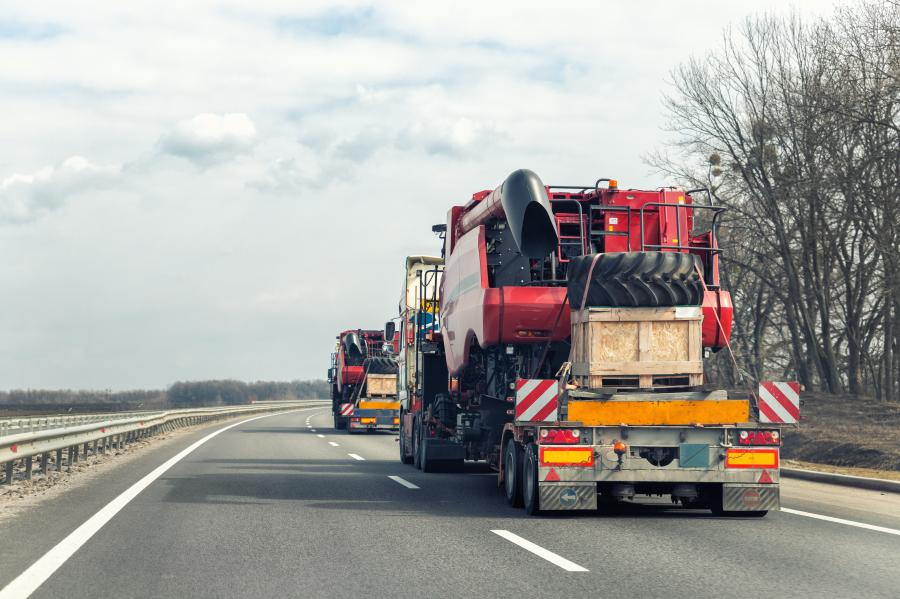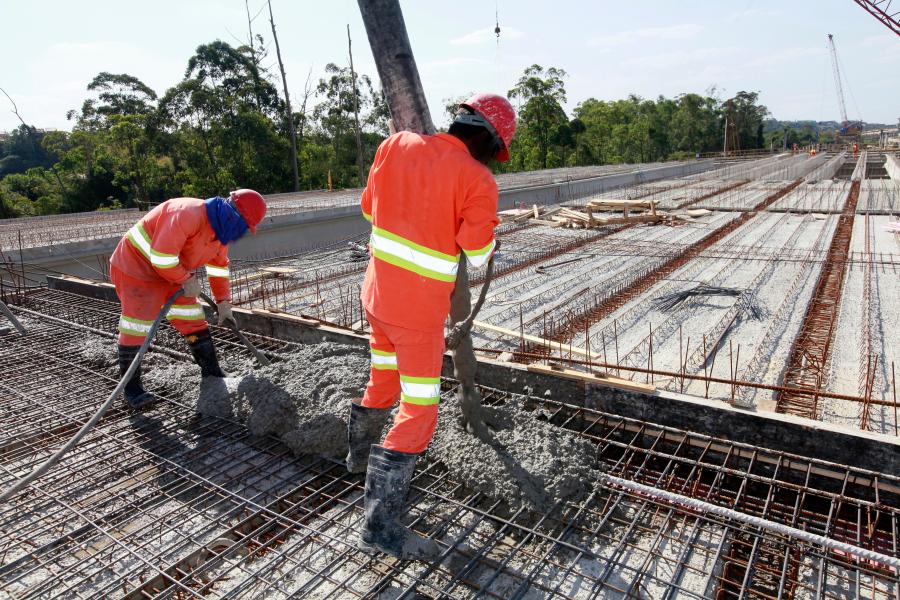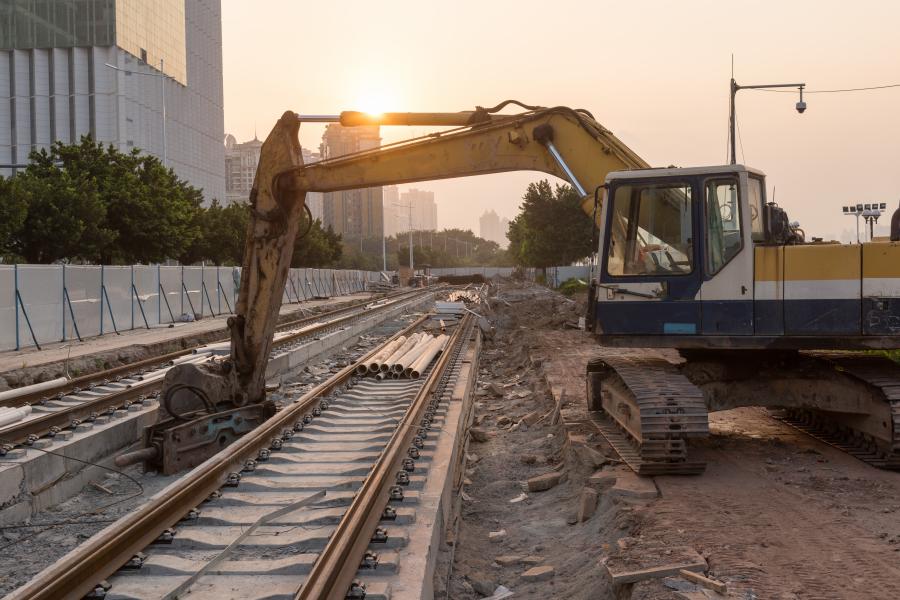Adobe Stock photo
The proposed budget boosts transit projects across the country. It earmarks $4 billion for 14 transit construction projects in 11 states.
Citing its vision to protect and build on the progress made over the past three years, the Biden administration released its proposed budget for the 2025 fiscal year. With almost $79 billion earmarked for highway, safety and transit programs, the budget also adds $9.5 billion to support the resilience, safety and sustainability of the nation's transportation network via the bipartisan infrastructure law.
Enacted in late 2021, IIJA is the Biden administration's outline for "building a better America," according to the Federal Transit Administration.
IIJA supports the rebuild of roads, bridges and rails and upgrades and expands public transit. The bipartisan law modernizes the nation's ports and airports, tackles the climate crisis and advances environmental justice.
It invests in "communities that have too often been left behind," said the White House. "It will drive the creation of good-paying union jobs and grow the economy sustainably and equitably to help everyone get ahead for decades to come."

Adobe Stock photo
In announcing Biden's FY2025 proposal to its members, ARTBA pointed out that the president's proposed budget "is rarely acted on by Congress."
However, the proffered budget "serves as the annual starting gun in the race to get spending bills done by the start of the new fiscal year," said the association.
Pointing out that Congress has failed to meet that goal, ARTBA officials said the organization will work to ensure full IIJA funding by Sept. 30 of this year.
The White House said that the proposal continues its goal of implementing the president's agenda of investing in America.
"The budget provides a total of $78.4 billion for highway, highway safety and transit formula programs," said the fed.
This amount supports monies authorized for year four of the bipartisan infrastructure law, the White House noted.
It also "reflects an additional $9.5 billion … for bridge replacement and rehabilitation (and) EV charging infrastructure," said the fed.
The president "called for full funding of core federal surface transportation and airport capital investment programs at previously authorized levels," said ARTBA.
The association noted that the proposed fiscal year 2025 budget sets $61.2 billion for federal highway programs. ARTBA said when combined with the IIJA's previous $9.5 billion, it brings total core highway capital investment to $71.6 billion.
"This would be an $800 million increase over IIJA-approved funding levels," said ARTBA, adding that the increase would be seen in grant programs.
Capital investment grant program resources would total $4 billion for transit construction. That adds $2.4 billion in FY 2025 appropriations to the $1.6 billion earmarked in IIJA spending. Grants totaling $8.4 billion would go to improving airport facilities including runways, taxiways and terminals.
"The funds are from a $3.4 billion budget request, combined with advance appropriations of $5 billion from the IIJA," said ARTBA.
The budget also includes an administration call for congress to allow states and localities to use core transit and highway resources for transit operating costs.
"The same request was made in FY 2024, but was ultimately rejected by lawmakers," said ARTBA.
Building On Momentum
Pete Buttigieg said Biden's budget allows the industry to continue advancing "vital" work under way across the country.
That is making travel safer on every mode of transportation, said the USDOT secretary.
"The budget protects and builds on progress," strengthening supply chains to keep costs down and modernizing infrastructure," said Buttigieg. "Americans are already seeing the roads being repaired, new bus and bike infrastructure being built, goods moving more smoothly from ships to shelves."
President Biden's proposed budget, which requests $109.3 billion for DOT, will accelerate all of this progress, he added.
The budget sets aside $21.8 billion for the FAA, including funding to continue the air traffic controller hiring and training surge.
"With funding, the FAA has a plan to hire at least 2,000 new controllers in order to meet growing air travel demand into the future," said Buttigieg.
The agency also will invest $3.6 billion to sustain the National Airspace System, and $8 billion over five years in aviation safety, efficiency and facilities.
The budget would "crack down on a corporate jet funding loophole," said the DOT secretary.
He said the budget takes "a critical step" to stabilize funding for the National Airspace "which has largely been funded by commercial air passengers."
Commercial passengers currently pay a 7.5 percent tax on tickets plus a passenger facility charge up to $4.50, he said.

Adobe Stock photo
"Meanwhile, private jet users only pay fuel surcharge taxes" of roughly 22 cents a gallon.
And private jets make up 7 percent of flights handled by FAA while contributing only .6 percent of the taxes in the Airport and Airway Trust Fund.
"The president's FY2025 Budget proposes a phased-in fuel fee increase to $1.06 per gallon for private jets," said Buttigieg.
Phased in over five years, this fuel fee increase would be the first update seen in decades, he said.
The proposed budget would improve roads and ensure the most important U.S. bridges remain safe and operational, he added.
He said after "decades of disinvestment," Biden's budget would give $62 billion to FHWA to modernize and improve roads and bridges.
That money also would support state safety programs and help communities complete infrastructure projects.
"This is an increase of more than 30 percent compared to 2021," said Buttigieg, including another $675 million for the Bridge Investment Program.
The addition will mean "the department can award more communities the funding to advance critical transportation projects and create good-paying jobs," he said. "In total, the resident's bipartisan infrastructure law invests a record $40 billion to fix thousands of our nation's bridges."
Rail safety and passenger rail would be increased and improved with the $3.2 billion earmarked for the federal railroad administration.
The money would go to improving the safety and condition of railroad infrastructure and rail services that move freight and passengers, said Buttigieg.
"This includes $2.5 billion for Amtrak and increasing safety inspector staffing to a record 400 inspectors and adding new staff dedicated to safety audits."
The budget also would fund reliable, safe and accessible transit, said Buttigieg.
In fact, $16.8 billion would go to the FTA to support urban and rural transit service. That includes $2.4 billion in grants for major capital projects.
"Other portions of the budget request will strengthen supply chains at our nation's ports," said the DOT secretary.
That includes an $80 million investment in the Port Infrastructure Development Program. It also includes additional support for shipping on the St. Lawrence Seaway, for pipeline safety inspections and innovation and emerging technologies.
The budget achieves "meaningful deficit reduction through measures that cut wasteful spending and ask the wealthy to pay their fair share," said Buttigieg.
Vitamin Boost for Transit
The president's proposal to congress boosts transit projects across the country. Buttigieg has included $4 billion for 14 projects in 11 states in the ask.
The federal support will come through the FTA capital investment grants and expedited project delivery pilot programs, according to the agency.
"The subway systems, commuter rail, light rail, streetcar and bus rapid transit projects will bring about transformative change in their communities."
This, by providing transit opportunities to new riders, will create jobs and jumpstart economic development, he added.
"The Biden-Harris Administration has awarded nearly $100 billion from the IIJA to support transit agencies of all sizes."
Buttigieg touted the funding, saying when transit reaches more people and communities its impact is greater.

Adobe Stock photo
"The Biden-Harris Administration is proud to support funding for 14 large projects that will expand transit for millions of Americans across the country."
Veronica Vanterpool, acting FTA administrator, said the investments support Biden's commitment to combat climate change.
They also improve safety, advance equity and improve quality of life for Americans, she added.
Seven of the 14 projects would receive funding for the first time while others already are under construction or are far enough along to receive a grant.
FTA also outlined several proposed provisions to increase access to and effectiveness of federal funds across American communities.
The agency would support equity in rural and tribal areas by waiving the match required in the applicable grants programs. It also would waive the match requirement for tribal applicants to the buses and bus facilities and low and no-emission competitive programs.
The proposed budget would "address the fiscal cliff" by allowing use of urbanized area formula funds and FHWA flex funds for urban operating assistance. It would empower local authorities by enabling transit agencies to purchase property outside an existing transit corridor falling in line with FHWA policies.
The budget would unlock micromobility systems by allowing grantees to fund shared systems, such as bicycles and scooters, to connect transit stations.
Finally, it would lower bus costs and speed up delivery by authorizing FTA to encourage delivery of low- and no-emission buses.
Which means there's something for the EPA to smile about as well in the proposed budget which achieves meaningful deficit reduction, said Michael Regan, EPA administrator.
The proposal bolsters the agency's efforts by investing nearly $1.5 billion in justice-related programs and the budget prioritizes combatting climate change with the urgency that science demands, he said.
And it provides $1.5 billion for the Office of Air and Radiation to develop policies and programs that control air pollution and radiation exposure. CEG
Lucy Perry
Lucy Perry has 30 years of experience covering the U.S. construction industry. She has served as Editor of paving and lifting magazines, and has created content for many national and international construction trade publications. A native of Baton Rouge, Louisiana, she has a Journalism degree from Louisiana State University, and is an avid fan of all LSU sports. She resides in Kansas City, Missouri, with her husband, who has turned her into a major fan of the NFL Kansas City Chiefs. When she's not chasing after Lucy, their dachshund, Lucy likes to create mixed-media art.
Read more from Lucy Perry here.
Today's top stories


















